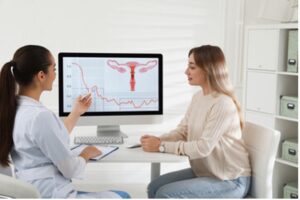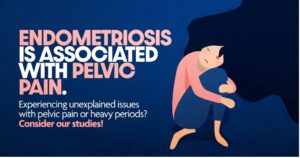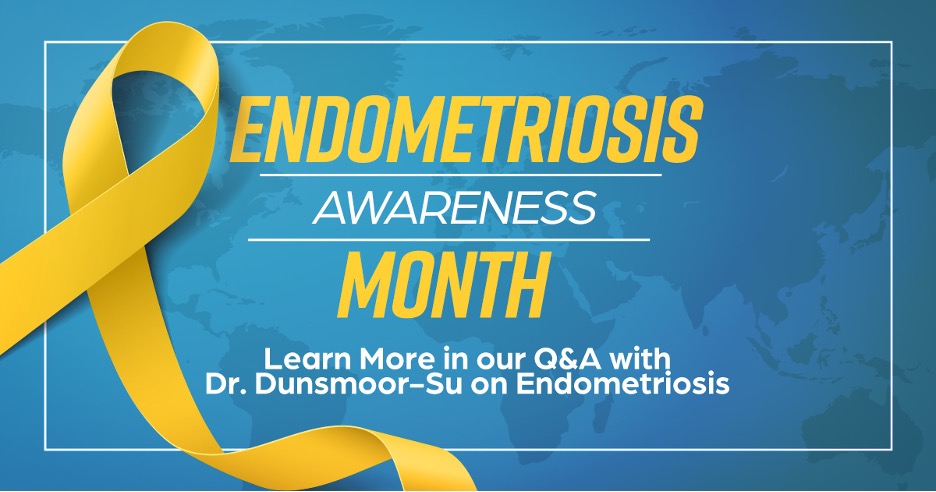Endometriosis is one of the most common causes of reproductive health ailments in women worldwide, yet people still don’t know much about it. That’s why we are happy to present our endometriosis awareness month Q&A with Dr. Dunsmoor-Su! Here you can have all your questions answered and gain insight into what symptoms to look out for, possible complications of the condition, and how it can be treated. March is for spreading some endo knowledge; read our latest blog below to remain informed!
What are the risk factors associated with endometriosis?
Dr. Dunsmoor-Su: Unfortunately, there aren’t well-identified risk factors per se; any woman who is cycling can have endometriosis. There is undoubtedly a genetic component that has yet to be identified, as endometriosis runs in families.
What are common signs and symptoms to be mindful of with endometriosis?
Dr. Dunsmoor-Su: Endometriosis can be tricky because many women often display no symptoms, so routine checkups are essential. However, the most common symptoms include painful periods, pelvic pain between menstrual cycles, pain emptying the bowels, and pain during intercourse. At times, women with endometriosis may also experience spotting between periods.

What comes next after an endometriosis diagnosis?
Dr. Dunsmoor-Su: If you suspect endometriosis, meet with a doctor to best assess treatment options. Once diagnosed, suppressive treatment is critical to keeping the condition’s pain at bay, primarily through hormones such as birth control, IUD, or progesterone forms. If these prove insufficient, a medication that suppresses ovarian function intending to lower hormone levels may be required.
Is there a link between endometriosis and infertility?
Dr. Dunsmoor-Su: While you can get pregnant with endometriosis, the condition can contribute to infertility through abdominal scarring and inflammation. Some women are also known to experience worsened symptoms of endometriosis due to the uterus’s consistent expansion. However, this is not absolute! If you are concerned about endometriosis and fertility issues, schedule an appointment with a healthcare professional today.
Will a hysterectomy cure endometriosis? Is the procedure recommended?
Dr. Dunsmoor-Su: A hysterectomy removes the ovaries to “cure” endometriosis. Note that there is no actual cure for this condition. Yet, this procedure IS known to relieve pain symptoms in patients significantly. However, a hysterectomy is considered a last resort of treatment for endometriosis and is typically mentioned if previously attempted forms of medication cannot adequately control symptoms.

Don’t ignore endometriosis pain; let us help you get ahead of it. Explore endometriosis studies now enrolling at Seattle Clinical Research Center by visiting our website or calling (206) 522 – 3330 extension 2 to learn more!
Resources:
https://seattlecrc.com/2023/02/13/the-effects-of-endometriosis/


